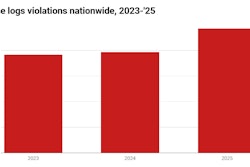If I’ve heard it once I’ve heard it a thousand times in the back-and-forth commentary over this or that issue, often centered around the issue of compensation: “If the Department of Labor didn’t classify us as unskilled labor …” What typically follows is the notion that this or that issue would be better for drivers.
The video here, from the folks at TruckerNation, does a pretty good job of debunking the notion that truckers fall into an “unskilled” classification, one used in government not by DOL at all, as Andrea Marks explains there, but by the Social Security Administration for various purposes. There, depending on the level of CDL obtained, and considering endorsements, amount of time worked and more, drivers are classified as either “skilled” or “semi-skilled,” she says. Never “unskilled.” It’s worth a watch.
What the video doesn’t get to is what’s typically happened in my own experience talking to folks all around the industry, as hinted at in the first paragraph here. When someone invokes the old “unskilled” notion, asked for some clarification what I’ve most often then heard is an invocation of the reality of the exemption from overtime-pay protections for DOT-regulated motor carrier employee drivers — that exemption was codified as part of the Fair Labor Standards Act of 1938. Follow this link for a clear fact sheet on it.

There’s been no shortage of talk about the seeming absurdity of an industry regulated by the hour but paid by the mile over the years, for sure. More seriously, you don’t have to look far to find past advocacy efforts centered on the notion that removal of the motor carrier exemption from overtime-pay requirements for safety-sensitive workers would force a better standard of compensation for company drivers, and drive better income conditions for owner-operators by extension. (Read owner-operator Joe Ammons’ past such argument here, and some distillation of related changing conditions — how that ELD mandate figures in — via this link. Find some carriers moving to more of a salary-type compensation model, with a miles incentive on top, via my own reporting from earlier in the year; such moves, when true earning potential is there, might be interpreted as a kind of advocacy in and of themselves.) In an industry where much energy is being expended by attorneys and drivers suing carriers over state meal and rest breaks in California, and by motor carrier interests hoping to overturn the outlier court action that is enabling such suits, changing the motor carrier exemption to the FLSA doesn’t seem to figure into compensation conversation so much of late.
What’s your view on it? If the FLSA exemption were removed and carriers were forced to adjust to the reality of overtime pay requirements, do you think your own particular situation in the industry would improve ultimately or not?









